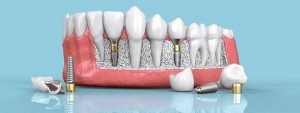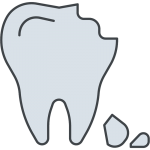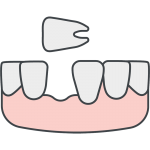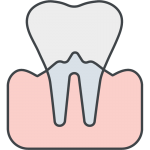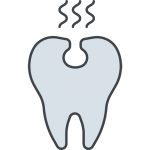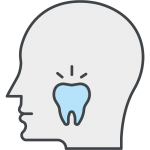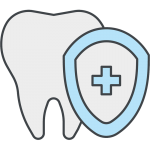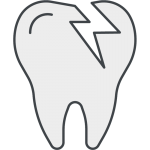Conscious Sedation in Dentistry
Who is afraid of the dentist?
Dental technology has come a long way over the years, and most procedures are virtually pain-free! Despite this, many people are still nervous when it comes to visiting their dentist. In some cases, people may experience severe anxiety which can become an issue when treatment is needed. This anxiety can often lead to patients avoiding the dentist or a necessary treatment altogether!
Sometimes, this anxiety can cause hyperventilation and can be a major issue for both the patient and the dentist. Dental anxiety is nothing to be ashamed of and this is not a rare occurrence. Many dentists have dealt with patients who suffer from this kind of anxiety. There are solutions in place that can help calm you and allow the dentist to perform your treatment in an environment where you feel comfortable.
Conscious Sedation
Conscious sedation is a very light form of anaesthesia and is a combination of medicines to help you relax (a sedative) and to block pain (an anaesthetic) during a medical or dental procedure. Conscious sedation is not the same as general anaesthesia as it is a much lighter treatment.
In most cases, you will likely stay awake but may not be able to speak. Unlike some surgeries where you are put to sleep, with conscious sedation you will remain awake. However, for some, the relaxed state that you will feel may make you a little drowsy and you can find yourself falling asleep.
When undergoing conscious sedation, you will feel calm and will not be able to feel any pain. The physical effects of your anxiety will be reduced and often even completely eliminated through the treatment.
Many dentists recommend this for patients who suffer from anxiety or for certain procedures such as tooth extractions.
Your dentist will give you conscious sedation in the room where your procedure will be taking place. Most of the time it will not be an anaesthesiologist. The medicine wears off relatively quickly, therefore it is used for short and uncomplicated procedures.
You may receive the medicine through an intravenous line (IV, in a vein) or a shot into a muscle. Once you have received the medicine, you will begin to feel drowsy, calm and relaxed.
Your breathing will begin to slow and your blood pressure may decrease slightly. Your dentist will monitor you throughout the procedure to make sure you are OK.
Sedation Types:
There are different types of sedation that will put you in varied states of relaxation. The type that your dentist chooses will depend on the procedure as well as your level of anxiety.
Light Sedation
With minimal sedation, you are relaxed while remaining awake and alert.
Moderate Sedation
You will remain conscious during a procedure, but you probably will not remember much about it. While you are able to communicate, you may feel groggy and slur your words. Some patients do fall asleep with moderate sedation but can be easily awoken.
Deep Sedation
This renders you either semi- or totally unconscious during your dental procedure, and does not usually fall under the category of conscious sedation. You will not regain consciousness until the drug wears off or is reversed, and recovery time will take longer in comparison to light and moderate sedation. Most forms of conscious sedation are considered ‘light’ or ‘moderate’.
Fun Fact
If you have experienced dental anxiety, you can have peace of mind that there are solutions out there. Certain procedures such as root canal or tooth extraction can be traumatic if you are experiencing some anxiety beforehand, however, undergoing conscious sedation will ensure that you are able to remain calm during your procedure. With this treatment, the procedure will be over before you know it!
It is important to chat with your dentist beforehand to discuss how you may be feeling regarding a certain procedure. Together, you will be able to decide if conscious sedation is an option that is best suited for you.
Important Info to Remember
Your dentist will give you a list of some important guidelines to follow before and after your procedure. Some of these usually include:
- Have no solid food within 6 hours of the procedure.
- Adults can have liquids up to 4 hours before the procedure.
- Children: Parents should follow their doctor’s advice.
- Someone else must take you to the centre/hospital.
- Before the procedure, remember to tell your doctor about any other medicines you are taking, or any allergies or other medical conditions you have. Ask him about any special instructions.
You may drink any fluids (other than alcohol), and eat half an hour after the procedure. If you have any questions, please ask your doctor.
Conscious sedation is a great solution that can help both dentists and patients when it comes to anxiety. At Aperture Dental, we want to ensure that you are totally calm and relaxed. With conscious sedation, there is no reason to be afraid of the dentist!



